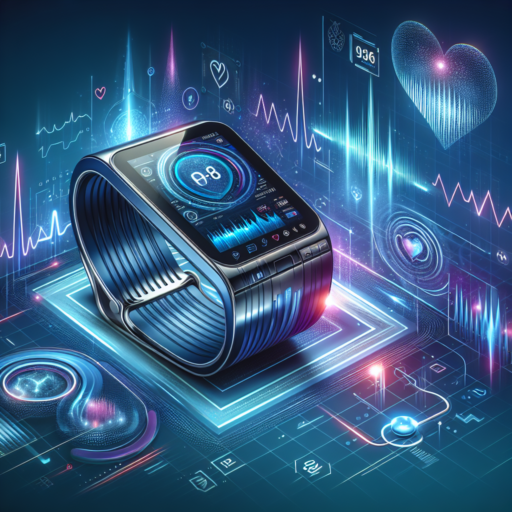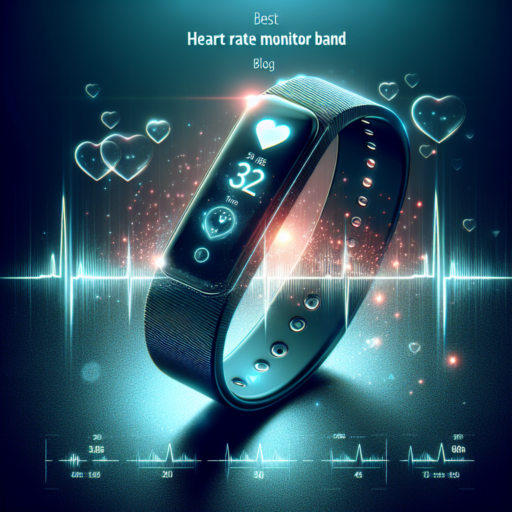What is the most accurate device for HRV?
When it comes to measuring Heart Rate Variability (HRV), accuracy is paramount for obtaining reliable data that can be used to assess an individual’s health and wellness. HRV, the variation in time between each heartbeat, is widely recognized for its insights into the autonomic nervous system and overall heart health. Among the plethora of devices available, certain types stand out for their precision and reliability.
Chest Strap Monitors are often hailed as the most accurate devices for HRV tracking. Unlike wrist-worn devices, chest straps measure electrical signals directly from the heart, providing data that is closer to what you would obtain from medical-grade equipment. Brands like Polar and Garmin have developed chest straps that are not only accurate but also comfortable and easy to use, making them a favorite among athletes and health enthusiasts alike.
In addition to chest straps, there has been significant advancements in Wearable Smart Devices, including high-end sports watches and fitness trackers. These devices offer the convenience of wrist-based measurements with increasingly improved algorithms for HR ignition. While historically less accurate than chest straps, top-tier models from Apple and Garmin now incorporate advanced optical heart rate sensors that narrow the accuracy gap, especially for continuous HRV monitoring.
Are HRV monitors accurate?
When discussing Heart Rate Variability (HRV) monitors, accuracy is often a top concern for both healthcare professionals and fitness enthusiasts alike. Given the role HRV plays in indicating overall health and fitness levels, the precision of these devices is paramount. However, the accuracy of HRV monitors can vary significantly depending on several factors.
Firstly, the type of technology used in HRV monitoring plays a crucial role. Electrocardiography (ECG/EKG) based monitors, often considered the gold standard, tend to offer higher accuracy due to their direct measurement of electrical activity of the heart. On the other hand, Photoplethysmography (PPG) based devices, which measure changes in blood volume and are commonly found in wearable technology like smartwatches and fitness bands, might not always deliver the same level of precision, especially under certain conditions such as intense physical movement or poor sensor placement.
Additionally, the context in which an HRV monitor is used also impacts its accuracy. While static, controlled conditions can lead to highly accurate readings, real-world environments with variables like movement, temperature, and even the user’s state of mind can introduce inconsistencies. It’s crucial for users to follow the manufacturer’s guidelines for wear and use to minimize these variables, ensuring the HRV data collected is as accurate as possible.
No se han encontrado productos.
What is the most accurate heart rate monitor on the market?
When discussing the most accurate heart rate monitor on the market, several factors come into play, including technology, user interface, and additional features beyond mere heart rate monitoring. Advances in biometric technology have paved the way for a variety of devices, each claiming to offer top-notch precision.
The Pinnacle of Accuracy: Chest Strap Monitors
The general consensus among fitness experts and researchers points towards chest strap monitors as the most accurate heart rate monitors available. This is due to their proximity to the heart, allowing them to capture the electrical signals with minimal interference. Among these, the Polar H10 stands out for its precision and reliability, making it a favorite among athletes and health enthusiasts alike.
Wrist-Based Monitors: Convenience Meets Technology
While chest straps are lauded for their accuracy, wrist-based monitors combine convenience with a high degree of precision. The Garmin Forerunner series and the Apple Watch have made significant strides in this realm, using advanced optical sensors to provide accurate heart rate measurements directly from the wrist. These devices cater to users seeking a balance between accuracy and ease of use, offering additional features like activity tracking and smart notifications.
In the quest for the most accurate heart rate monitor, it becomes clear that the choice largely depends on the user’s preferences and requirements. Chest strap monitors, with their direct heart measurement, offer unparalleled accuracy, while wrist-based monitors provide a compelling combination of precision and convenience.
What is the best test for HRV?
When discussing the measurement of Heart Rate Variability (HRV), identifying the best test involves considering several factors, including accuracy, accessibility, and usability for both health professionals and individuals. HRV, a measure of the variation in time between consecutive heartbeats, is widely recognized for its insights into autonomic nervous system (ANS) function and overall cardiovascular health.
Among the various methods available, 24-hour Holter monitoring stands out due to its comprehensive data capture over an extended period. This test allows for a detailed analysis of HRV in different states—awake, asleep, at rest, and during physical activity—offering a complete picture of heart function across a full day. Despite its detailed output, its use may be limited to more clinical or research settings due to the requirement of specialized equipment.
For personal monitoring and ease of access, wearable technology, such as fitness trackers and smartwatches, has become increasingly popular. These devices provide the advantage of continuous HRV monitoring in real-life settings, contributing to a broader understanding of an individual’s heart health under various conditions. While they may not offer the granularity of data seen in clinical tests, for many users, the convenience and ability to track trends over time make them a valuable tool for health self-assessment.




